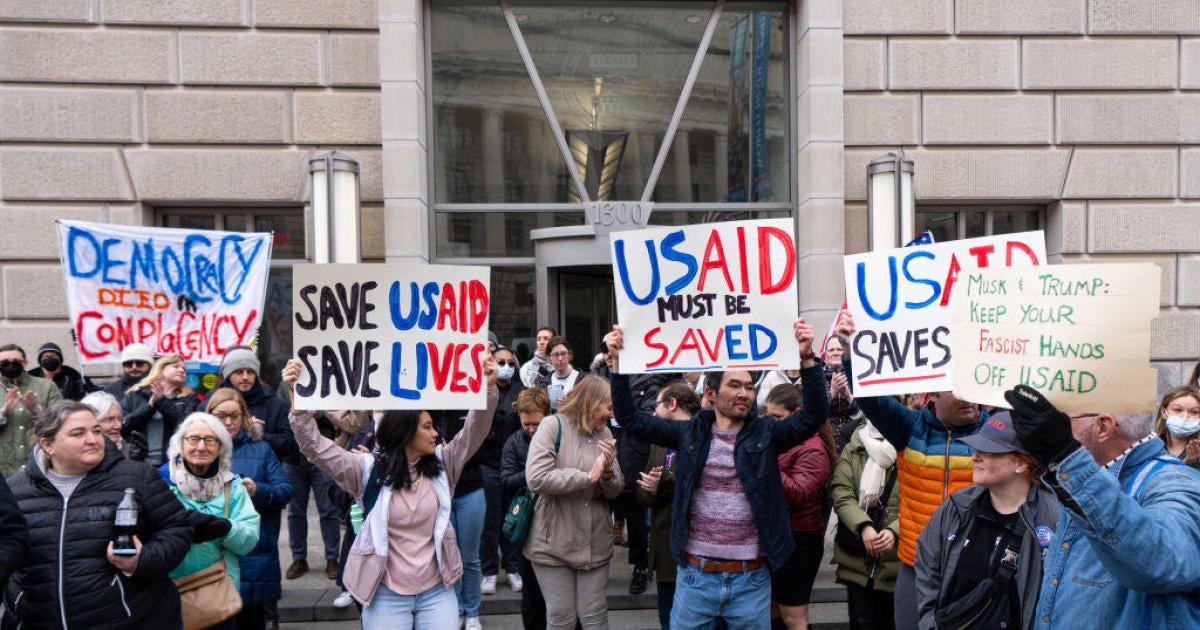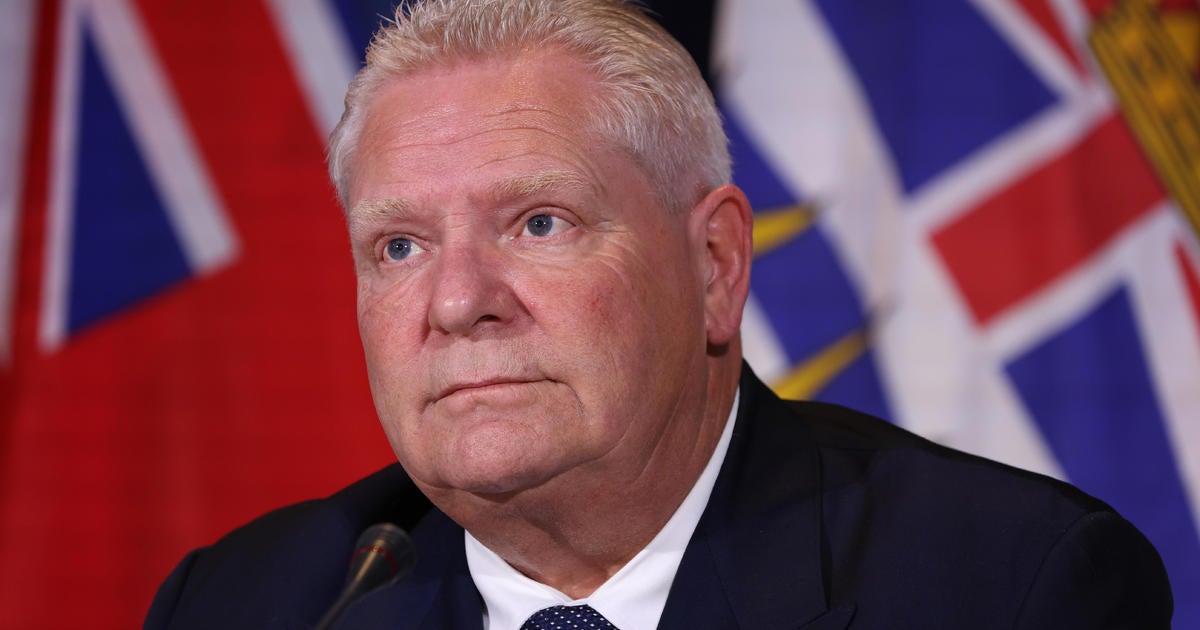The Trump administration’s targeting of USAID comes as the president has vowed to cut the size of the federal government and tasked Musk with leading the effort to do so through his Department of Government Efficiency, or DOGE. Secretary of State Marco Rubio has notified Congress that he is eyeing a potential reorganization, which could include merging it with the State Department.
But critics of Mr. Trump’s actions warn that the sweeping moves, which come just two weeks after he returned to office, threaten to put the nation at risk and undermine its credibility around the world. Lawmakers have also warned that any attempt to change the structure of USAID, an independent agency, would require action by Congress.
“If the United States is going to prevail in great power competition, we cannot afford to take a timeout from USAID programs that have long served to advance U.S. foreign policy goals,” the top Democrats on the House and Senate Foreign Affairs Committees said in a letter last week to Jason Gray, who was then serving as acting USAID administrator. “America needs to be active, and we must lead through our example.”
What is USAID?
Bill Clark/CQ-Roll Call, Inc via Getty Images
The U.S. Agency for International Development is the federal government’s lead agency for international and development assistance. Established in 1961 when President John F. Kennedy signed the Foreign Assistance Act, USAID “works to end extreme global poverty and enable resilient, democratic societies to realize their potential,” according to an archived webpage from the agency.
The aid the organization provides is aimed at furthering numerous goals, including strengthening democracy, protecting human rights, improving global health and advancing food security, the page said.
USAID has more than 10,000 people in its workforce, according to the nonpartisan Congressional Research Service, and most of those employees — roughly two-thirds — are serving overseas. The agency has more than 60 country and regional missions.
The agency is funded by taxpayer dollars authorized by Congress and reports to the secretary of state.
According to an archived version of its website, USAID money has been used to provide nearly 9,000 ventilators to 43 countries during the COVID-19 pandemic, fund more than 150 local organizations to implement interventions for HIV and to launch the Countering Chinese Influence Fund. USAID said the fund will invest $300 million in programs to advance national security goals across several areas “to build more resilient partners that are able to withstand pressure from the [Chinese Community Party] and other malign actors.”
USAID was created at the height of the Cold War as part of a recognition by Kennedy and his successor, President Lyndon B. Johnson, of humanitarian aid as a form of diplomacy. With the agency outlasting the Cold War and new threats to U.S. interests emerging, Democrats in Congress have warned that Mr. Trump’s gutting of USAID threatens the nation’s ability to compete with China and Russia.
What is the USAID budget?
In fiscal year 2023, USAID managed more than $40 billion in appropriations, the Congressional Research Service said, a figure that is less than 1% of the federal budget.
Most of that funding went to governance programs, followed by the humanitarian and health sectors, according to the report. The countries that received the most money in fiscal year 2023 were Ukraine, Ethiopia and Jordan.
While the health sector received the most funding in the early 1990s, humanitarian assistance became the highest-funded area in fiscal year 2022 because of increases in aid following “natural and human-induced humanitarian crises,” according to the Congressional Research Service. Governance took the top spot for fiscal year 2023, though, because of U.S. support for Ukraine’s government amid the country’s war with Russia.
The money approved for USAID by Congress is spent through the agency’s “implementing partners,” which include private contractors, nonprofit organizations, foreign governments and international groups.
What is going on with USAID now?
The agency has come under significant scrutiny by Musk and DOGE, which Mr. Trump has tasked with shrinking the size of the federal government.
Musk has repeatedly criticized USAID on X, the social media platform he owns, calling it a “criminal organization” that should “die.” He said early Monday that he had spoken with Mr. Trump about USAID and claimed the president agrees “we should shut it down.”
“USAID is a ball of worms. There is no apple and when there is no apple, you’ve just got to basically get rid of the whole thing,” Musk said, adding the agency is “beyond repair.”
Mr. Trump, meanwhile, told reporters Saturday that the agency has “been run by a bunch of radical lunatics.”
There has been a flurry of activity targeting USAID and its employees over the past few days. Roughly 60 senior staff were placed on administrative leave last week and hundreds of contractors had their employment furloughed or terminated, sources told CBS News.
Then, on Saturday, USAID’s website went dark, and two top security officials with the humanitarian aid agency were placed on administrative leave after they refused to let personnel from DOGE access classified information in restricted areas, according to the Associated Press.
Katie Miller, who works for DOGE, said on X that “no classified material was accessed without proper security clearances.”
Matt Hopson, who was tapped by Mr. Trump to serve as USAID chief of staff, resigned Sunday, two staffers told CBS News. Agency staff were told USAID’s headquarters in Washington, D.C., would be closed to them Monday, according to a notice they received.
The turmoil at USAID is set against the backdrop of the Trump administration’s 90-day freeze on foreign assistance, which has roiled programs worldwide and forced layoffs and furloughs. The order directed all U.S. diplomatic and consular posts to immediately issue “stop-work” orders for existing foreign assistance awards, pending review by the secretary.
But the secretary of state later issued a waiver that applies to “life-saving humanitarian assistance,” defined as “life-saving medicine, medical services, food, shelter, and subsistence assistance, as well as supplies and reasonable administrative costs as necessary to deliver such assistance.”
What will happen to USAID?
House Foreign Affairs Committee Chairman Brian Mast, a Republican from Florida, told “Face the Nation” on Sunday that USAID would likely be “rolled more closely” under Rubio. He lamented that a fraction of what the agency spends goes to aid.
“I would be absolutely for, if that’s the path we go down, removing USAID as a separate department” and moving parts of it to the State Department, Mast said.
A day later, three U.S. officials told CBS News that USAID would remain a humanitarian aid entity, but would be merged into the State Department with cuts to its funding and workforce. The Trump administration is expected to announce the changes in the coming days. Rubio has been named acting administrator of USAID, and he told Congress in a letter obtained by CBS News that he authorized Peter Marocco, director of Foreign Assistance at the State Department, to perform the duties of deputy administrator.
The State Department said in a statement that Rubio has “notified Congress that a review of USAID’s foreign assistance activities is underway with an eye towards potential reorganization.”
Dr. Atul Gawande, former USAID Global Health Director, told Fox News the move to target the agency is “dangerous for the United States and humanity.”
“These are people shutting down an agency and having no clue the work that is being done. I’m a surgeon. I led Global Health at USAID, and I can tell you, this is where these are programs touching hundreds of millions of people around the world on a budget that’s half the budget of the hospital where I do surgery,” Gawande said.
In a series of posts on X, Gawande said a pause on foreign assistance “does serious damage to the world and the US.” He also posted a list of examples on how this can impact global health, including stopping work on a deadly Marburg outbreak in Tanzania, a wide outbreak of a mpox variant killing children in west Africa and stopping critical work to eradicate polio.
Some impacts hit even closer to home, as this also “stops monitoring of bird flu in 49 countries, a disease which already killed an American on home soil,” he wrote.
“Make no mistake — these essential, lifesaving activities are being halted right now. Consequences aren’t in some distant future. They are immediate,” he concluded his thread.
The Trump administration will not be the first to attempt to oversee a reorganization of USAID. A similar effort was made by former Secretary of State Madeleine Albright during the Clinton administration under a two-year plan that would keep USAID as a separate agency but bring it under the secretary of state’s direct authority.
In 1998, Congress passed the Foreign Affairs Reform and Restructuring Act, which established USAID as an independent agency and clarified that its administrator “shall report to and be under the direct authority and foreign policy guidance of the secretary of state.”
By the end of Bill Clinton’s presidency, USAID’s workforce had dropped from 11,500 employees to less than 8,000, and the number of countries with agency programs was cut from 120 to 70, according to the book “State vs Defense: The Battle to Define America’s Empire” by journalist Stephen Glain.
and
Sara Moniuszko
contributed to this report.
USAID, Trump Administration
#Trump #Elon #Musk #upending #USAID #Heres #work


